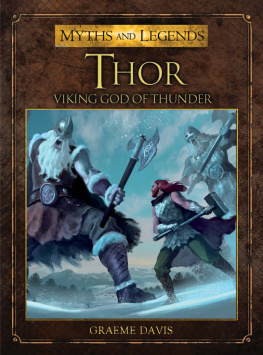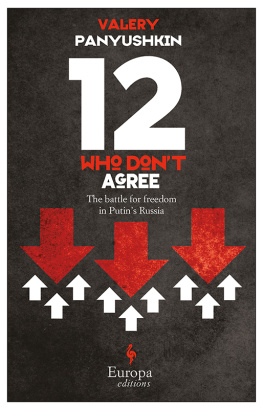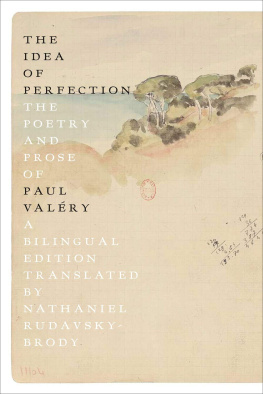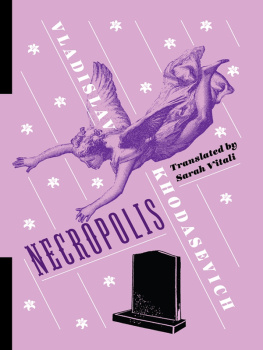Graeme Davis - Nine Poems of Valery Bryusov
Here you can read online Graeme Davis - Nine Poems of Valery Bryusov full text of the book (entire story) in english for free. Download pdf and epub, get meaning, cover and reviews about this ebook. year: 2013, genre: Non-fiction. Description of the work, (preface) as well as reviews are available. Best literature library LitArk.com created for fans of good reading and offers a wide selection of genres:
Romance novel
Science fiction
Adventure
Detective
Science
History
Home and family
Prose
Art
Politics
Computer
Non-fiction
Religion
Business
Children
Humor
Choose a favorite category and find really read worthwhile books. Enjoy immersion in the world of imagination, feel the emotions of the characters or learn something new for yourself, make an fascinating discovery.

- Book:Nine Poems of Valery Bryusov
- Author:
- Genre:
- Year:2013
- Rating:5 / 5
- Favourites:Add to favourites
- Your mark:
- 100
- 1
- 2
- 3
- 4
- 5
Nine Poems of Valery Bryusov: summary, description and annotation
We offer to read an annotation, description, summary or preface (depends on what the author of the book "Nine Poems of Valery Bryusov" wrote himself). If you haven't found the necessary information about the book — write in the comments, we will try to find it.
To a Youthful Poet
To the Poet
Sonnet to Form
The Lady Friends
To the City
We travelled far
The Coming Huns
Achilles at the Altar
The Pale Horse
Nine Poems of Valery Bryusov — read online for free the complete book (whole text) full work
Below is the text of the book, divided by pages. System saving the place of the last page read, allows you to conveniently read the book "Nine Poems of Valery Bryusov" online for free, without having to search again every time where you left off. Put a bookmark, and you can go to the page where you finished reading at any time.
Font size:
Interval:
Bookmark:
Nine Poems of Valery Bryusov translated by Graeme Davis Part one in the series Selected Poems of the Russian Symbolists: Bryusov, Akhmatova and Mandelstam
Contents
Introduction : on opening a volume of the poets verses
Symbolism reacts against what it sees as a literary tradition of naturalism and realism, presenting instead an affirmation of spirituality. Scenes from art and from nature are not described for their own sake but for what they symbolise. Bryusov developed a version of Symbolism in Russia. He presents the poet as a superman, someone able to see that which others cannot. The first three poems in this collection reflect directly on the poetic process, and they are disturbing. The poet is perceived as detached from the everyday world, an extreme individualist loving himself and having sympathy for no-one, someone who worships art.
The poet is to transcend the passion of love and the pain of crucifixion, seeking Christ-like a crown of thorns, and so he produces poems like chiselled diamonds. Like Richard Wagner, one of his inspirations, Bryusov produces art of the highest quality, yet this art must be set against a doubtful personal morality. Bryusov presents scenes of Moscow and the Russia he knew. The surface image he presents is transcended by his message. Thus while he writes of three drunk women, of the city and of a Russian railway journey, the reader perceives his meaning beyond the surface description.
To a Youthful Poet
To a Youthful Poet
Accept the first of these: do not live in the present, Only in the future the province of the poet. Remember now the second: have sympathy with no-one, Love yourself unlimitedly. Preserve this third: bow-down before art, Only to it, without reflecting, without aim. O pale youth with disturbed gaze! If you will accept my three testaments, In silence I shall fall as a vanquished warrior, Knowing that I shall leave a poet in the world.
To the Poet
Perhaps everything in life is but material For brightly singing verses, And you from your carefree childhood Seek for combinations of words. In the minutes of loving embrace Force yourself to be passionless, And in the hour of merciless crucifixion Glorify your frenzied pain. In the dreams of morning and the abyss of evening Seize hold of Fates whispered message, And remember, from time immemorial, The poets cherished crown has been one of thorns.
Sonnet to Form
And it is my wish that all my fancies Which have reached the realm of words and light May find for themselves the desired lines. May my friend, on opening a volume of the poets verses Find delight both in the loveliness of a sonnet And in the letter of its tranquil beauty.
The Lady Friends
To the City
To the City
Made of steel, brick and glass, Wound about with a network of wires, You are an untiring sorcerer, You are an unweakening magnet. Like a dragon, predatory and wingless Sitting there, you are a guardian of the years, And through your iron veins Gas streams and water flows. Your immense belly Is not sated by the booty of the centuries, Within it Malice unceasingly grumbles, never falling silent, And in it Poverty menacingly groans. You, cunning one; you, persistent one; You have erected palaces of gold, You have set up festive temples For statues, for pictures and for books. But you unsubmissive one, You are calling a hoard down to storm your palace, And you are sending leaders to a sinister meeting: Madness, Pride and Need. And in that night when in crystalline halls Fiery Debauch stands laughing, And the poison of passionate moments Foams in the goblets tenderly You are bending the back of grim slaves, In order that these ecstatic machines, Which turn round with ease, Should forge sharp blades.
O crafty serpent with magical gaze! In a gust of blind fury You yourself with your fatal passion Are raising a knife above your own head.
We travelled far
The Coming Huns
Pile up the books on bonfires, Dance in their joyful light, Come and perform foul deeds in the temple You are innocent of everything, like children. We wise-men and poets Who protect hidden truth, We will go away carrying our lighted lamps Into the catacombs, the deserts and the caves. And what beneath this flying storm And beneath this thunder-storm of dust Will playful fate preserve Of our cherished creations? Maybe everything will perish without trace, Everything that was known to us. But you who come to destroy me I greet with a hymn of welcome.
Achilles at the Altar
Font size:
Interval:
Bookmark:
Similar books «Nine Poems of Valery Bryusov»
Look at similar books to Nine Poems of Valery Bryusov. We have selected literature similar in name and meaning in the hope of providing readers with more options to find new, interesting, not yet read works.
Discussion, reviews of the book Nine Poems of Valery Bryusov and just readers' own opinions. Leave your comments, write what you think about the work, its meaning or the main characters. Specify what exactly you liked and what you didn't like, and why you think so.






